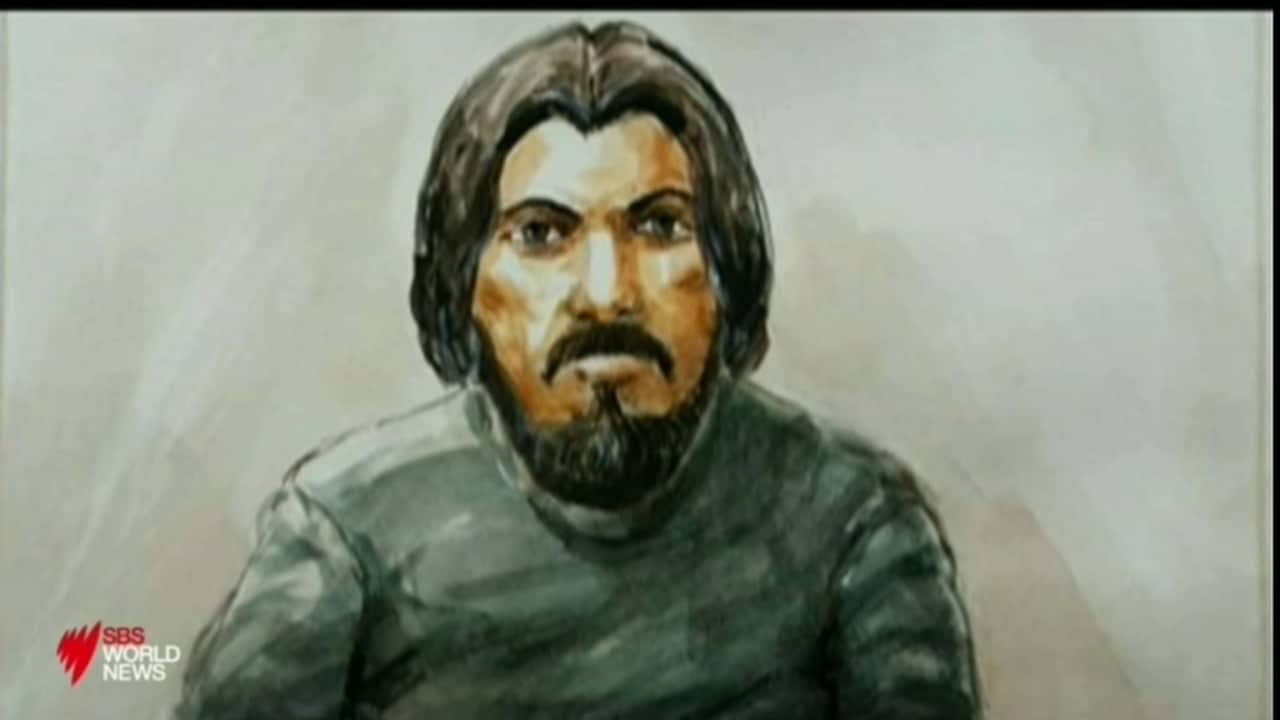Afghan-born Omarjan Azari, 26, was sentenced to 18 years in jail on Friday for his part in plotting to kill up to seven people a month on Australian soil with the goal of creating international headlines.
The Sydney resident, who was arrested in September 2014 as part of Operation Appleby, refused to stand as his sentence was read out in Parramatta's Supreme Court.
As the judge left the courtroom, Azari stood up and gave the IS salute while stating "Allahu Akbar" ("God is [the] greatest" in Arabic).
Azari was found guilty of doing an act in preparation of a terror attack in October last year and had previously pleaded guilty to attempting to give $US 9,000 to the IS, a year after attempting to travel to Syria.

Omarjan Azari has been sentenced to 18 years in jail. Source: SBS News
In a 2014 phone call with Australia's most senior IS member Mohammad Ali Baryalei, recited in part by Justice Natalie Adams, Azari discussed plans to behead people in Australia.
"I want you to do this work, but I want this work to be continuous, I don't want you to be arrested," Baryalei told Azari.
"Every month terminate five, six, seven people … every month and we will make videos and videos and videos like this.
"If the person is a tourist or backpacker, an American, French or British even better ... so it makes, you know, worldwide news."
Azari said he needed to wait two months due to surveillance, but would assist in carrying out the acts.
"What you guys need to do is just pick any random unbeliever, finish him or her, when finished put the flag of the state, our flag, on the background and I need that video here," Baryalei said earlier in the call.
Baryalei, who was responsible for recruiting Australians to fight in Syria, is believed to have been killed while fighting in the Middle East in 2014.
In the lengthy two-hour sentencing, Justice Adams said the 20-minute call was "the basis of the charge that the offender did an act in preparation for or planning a terrorist act".
She added that unlike many other “lone-wolf” terror cases where the offender has been radicalised on the internet, in Azari’s case he had direct contact with IS.
"It demonstrates the insidious nature of Islamic State and the hold it was able to take over young Muslims. In this case, it captured the heart and mind of an otherwise law-abiding young man and radicalised him," she said.
Azari was sentenced to 13-and-a-half years non-parole. With time already served, he will be behind bars until at least March 2028.
Additional reporting: Virginia Langeberg

